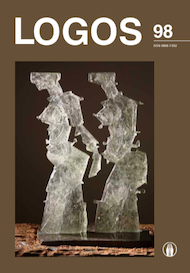MITAS IR ŠIFRAS . POSTSEKULIARYBĖS IMPLIKACIJOS KARLO JASPERSO IR RUDOLFO BULTMANNO MĄSTYME
MYTH AND CIPHER. THE IMPLICATIONS OF POST-SECULARITY IN THE THINKING OF KARL JASPERS AND RUDOLF BULTMANN
Author(s): Lina VidauskytėSubject(s): Christian Theology and Religion, Existentialism, Philosophy of Religion
Published by: Visuomeninė organizacija »LOGOS«
Keywords: post-secularity; myth; demythologizaton; Jaspers; Bultmann;
Summary/Abstract: The article is focused on the famous discussion between philosopher K. Jaspers and theologian R. Bultmann on demythologization of Christianity. The main points of the discussion, the arguments put forward by both sides, and the proposed alternative to the program of demythologization offered by Jaspers are outlined. Demythologization of Christianity indicates the religious crisis and an attempt to overcome it. For Bultmann, the development of modern science is incompatible with the mythical picture of the Christian religion. Therefore, he announces the program of demythologization and seeks to introduce an existential analysis of the New Testament. M. Heidegger’s philosophy should have been the basis for this existential analysis. The author asks the question of whether it is possible to overcome myths in general. In fact, this is not only a personal view of Jaspers, but a philosophical position shared by philosophers Hans Blumenberg and Odo Marquard.
Journal: LOGOS - A Journal of Religion, Philosophy, Comparative Cultural Studies and Art
- Issue Year: 2019
- Issue No: 98
- Page Range: 37-44
- Page Count: 8
- Language: Lithuanian

